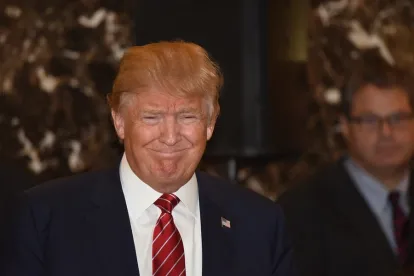On Inauguration Day, January 20, 2017, the Trump administration issued a freeze on new regulations by executive agencies, and on January 23, 2017, the administration ordered a freeze on hiring employees by executive agencies. Each of these actions has the potential to affect federal financial regulation.
The regulatory freeze, issued in a memo by Chief of Staff Reince Priebus, directs executive agencies to: (1) refrain from sending any new regulation to the Office of the Federal Register (“OFR”) until it has been approved by an agency head appointed by President Trump; (2) withdraw any regulation that has been sent to the OFR but remains unpublished; and (3) temporarily postpone, for 60 days from the date of the Inauguration, the effective date of any regulation that has been published by the OFR but has not yet taken effect. The Priebus memo contains exceptions to these directives for emergency situations or other urgent circumstances, but such exceptions must be approved by the Director of the Office of Management and Budget (“OMB”). The Priebus memo closely tracks similar memoranda issued by the chiefs of staff of President Bush in 2001 and President Obama in 2009, though the Obama administration only directed the executive agencies to “consider” a 60 day delay for regulations that had not yet taken effect.
By its terms, the Priebus memo does not appear to apply to the federal financial regulators. The memo defines “regulation” as any “regulatory action” under Executive Order 12866, which means “any substantive action by an agency (normally published in the Federal Register) that promulgates or is expected to lead to the promulgation of a final rule or regulation, including notices of inquiry, advances notices of proposed rulemaking, and notices of proposed rulemaking.” The definition of “agency” in Executive Order 12866 explicitly excludes “those considered to be independent regulatory agencies,” as defined in 44 U.S.C. § 3502. That statute, in turn, defines “independent regulatory agency” to include the Board of Governors of the Federal Reserve System, the Consumer Financial Protection Bureau (“CFPB”), the Office of the Comptroller of the Currency (“OCC”), the Federal Deposit Insurance Corporation, the Securities and Exchange Commission, and the Commodity Futures Trading Commission.
However, the United States Court of Appeals for the District of Columbia Circuit’s October 2016 decision in the PHH Corporation v. Consumer Financial Protection Bureau case creates some uncertainty as to whether the CFPB is an independent regulatory agency for these purposes. In that case, the D.C. Circuit struck down restrictions on the President’s ability to remove the Director of the CFPB and stated that as a result, the CFPB will operate as an executive agency. As we have discussed previously, the PHH ruling currently is stayed until the D.C. Circuit rules on a petition for an en banc rehearing of the case. And the PHH opinion does not square its ruling with the statute listing the CFPB as an “independent regulatory agency.”
In any event, some or all of the federal financial regulators may decide to comply with the Priebus memo voluntarily. In addition, executive agencies such as the Department of the Treasury, the Department of Labor, and the Department of Housing and Urban Development sometimes issue significant financial regulations and all three agencies are clearly subject to the Priebus memo.
The hiring freeze, issued in a memo from President Trump, prohibits executive agencies from hiring federal civilian employees, other than as the head of an executive agency deems necessary to meet national security or public safety responsibilities, or when otherwise permitted by the Director of the Office of Personnel Management (“OPM”). In addition, the memo directs the Director of OMB, in consultation with the Director of OPM, to recommend a long-term plan to reduce through attrition the size of the federal government’s workforce. Finally, the memo prohibits executive agencies from using private contractors to circumvent the intent of the hiring freeze. The hiring freeze exempts certain types of positions, including Presidentially-appointed or Senate confirmed positions and non-career positions in the Senior Executive Service.
Unlike the Priebus memo, President Trump’s hiring freeze memo does not include any definitions that shed light on the meaning of the term “executive agency.” It is possible that the Trump administration could take the position that, since the OCC is a bureau of the Treasury Department and subject to the Department’s “general direction” (12 U.S.C. 1(b)(1)), the hiring freeze would constitute such “general direction” – even though the Treasury Department has no specific authority over personnel at the OCC other than the Comptroller. The administration could also take the position that, as a result of the PHH case, the CFPB is considered an “executive agency” and is thereby subject to the President’s direction with respect to hiring. Neither agency has commented on whether it is subject to the hiring freeze.




 />i
/>i

